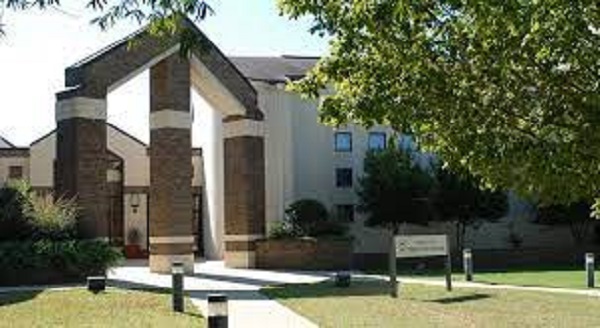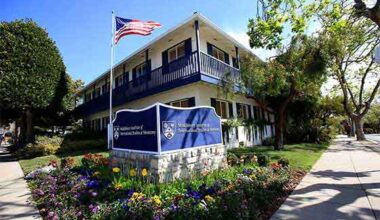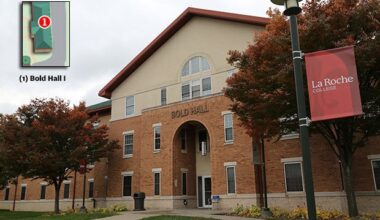Table of Contents
- Why study at Pentecostal Theological Seminary Cleveland Tennessee?
- Is Pentecostal Theological Seminary Cleveland Tennessee Accredited?
- Pentecostal Theological Seminary Cleveland Tennessee Graduation Rate
- Tuition and cost at Pentecostal Theological Seminary
- How much does it cost to study for 4 years at the Pentecostal Theological Seminary Cleveland Tennessee?
- Admission Requirement
- Pentecostal Theological Seminary Online degree and programs
- Pentecostal Theological Seminary Credit hours policy and procedures
- We Recommend These:
Pentecostal Theological Seminary is a private, accredited graduate school based in the faith in Cleveland, Tennessee. It exists as part of the educational ministry of the Church of God and focuses on the theories of Wesleyan / The Holiness and Spirituality of the Pentecostals.
It has been training ministers since 1975. Although an institute of the Church of God, the seminary accepts students from other denominations, especially those seeking an emphasis in the theology of Wesley and Pentecost.
The mission of the Pentecostal Theological Seminary in Cleveland, Tennessee, is to prepare its students (men and women) for Christian service. The seminary is devoted to the obedience of God, the absolute authority of Scripture and the Holiness of Pentecost in the interpretation of the Christian faith.
Academics in the seminary consists of programs for the Master of Theology (MDiv), the Master of Arts in Discipleship and Christian Formation (MADCF), the Master of Arts in Church Ministries (MACM), the Master of Arts in Counseling (MAC) and the Doctor of Arts (DMin).
Why study at Pentecostal Theological Seminary Cleveland Tennessee?
The in-depth admission process to the Seminary was designed to demonstrate the applicant’s potential for service in the Kingdom of God. Typical core requirements include a bachelor’s degree from an accredited, approved institution with a grade point average or higher, and an exhibition of spiritual maturity. The Admissions Committee may provide complete information on the entire application and interview process.
The cost of tuition varies depending on the number of credits and the program taken. For master’s programs, there is a small discount on tuition for credit hours 9-16. In addition, courses at the university receive a discount compared to online courses.
The seminary is funded by the Church of God, headquartered in Cleveland, Tennessee, and operates under the statutes of Tennessee and Bradley. The school and its programs are approved by the Tennessee Board of Higher Education.
The seminary is also approved by the State Approval Agency for the training of persons eligible for veterans’ education benefits and is authorized by federal law to admit foreign students.
Is Pentecostal Theological Seminary Cleveland Tennessee Accredited?
The Pentecostal Theological Seminary is accredited by the College Commission of the Southern Association of Colleges and Schools for the award of master’s and doctoral degrees.
The Seminary is accredited by the Association of Theological Schools of the United States and Canada (ATS – 10 Summit Park Drive, Pittsburgh) to offer a Master of Divinity (MDiv), a Master of Arts in Church Ministries (MACM), and a Master of Arts in Clinical Psychological Counseling. I (MACMHC), Master of Theological Studies (MTS), Master of Arts in Counseling (MA (Counseling)), Master of Christian Studies (MACS) and Doctor of Ministries (DMin) Seminary are also endorsed to offer all of their degree programs online.
ALSO CHECK: Northpoint Bible College: Ranking, Courses, Acceptance Rate, Admission Requirements and Tuition
Pentecostal Theological Seminary Cleveland Tennessee Graduation Rate
College graduation is an important indicator of the success of college students in achieving their educational goals. Prepler defines graduation as the percentage of the first full-time students to graduate from Pentecostal seminary in four to six years.
Tuition and cost at Pentecostal Theological Seminary
The cost of training in 2020 at Pentecostal Theological Seminary was $ 2,596 for their students, and the cost of postgraduate study in 2020 was $ 11,995. Tuition and tuition fees are much lower than the average tuition fee at such schools ($ 13,411 for private (nonprofit) seminaries, Bible colleges, and other faith-based institutions).
Tuition and fees have not increased since 2017 at the Seminary. For senior students, the tuition fee until 2021 and the fee for Pentecostal Theological Seminary is $ 2,596. For graduation programs, the cost of tuition and tuition fees for graduate school in 2021 is $ 11,995.
How much does it cost to study for 4 years at the Pentecostal Theological Seminary Cleveland Tennessee?
For students admitted in the fall of 2021, the estimated cost of tuition for 4 years is $ 10,384. As tuition fees at the Pentecostal Theological Seminary have not increased in the last 4 years, the estimated tuition fees are the same.
Actual costs may differ from estimates based on school or university education policies. The evaluation excludes the book, expenses and living expenses before receiving financial assistance. The assessment is based on 4-year changes in tuition and school fees.
Admission Requirement
Admission to Pentecostal Theological Seminary is based on two factors, as they demonstrate the potential for service in the Kingdom of God.
Evidence of academic ability is generally assessed on the basis of a bachelor’s degree from a college accredited by an association that has membership in the Postgraduate Accreditation Board or membership in the Association of Canadian Universities and Colleges, or the equivalent of this level of academic achievement.
Students from those parts of the world that do not have an American college will be accepted on the basis of an equivalent level of preparation. The application of a person who does not have an institution accredited in the regions will be considered individually by the Admissions Committee.
In order to study well in seminary, a person usually needs to complete a degree with a grade point average or higher. Applicants whose transcripts do not reflect this may be asked to provide other evidence of ability and/or incentive.
Such evidence may be provided in the form of recommendations and other supporting documents (essays, publications, etc.).
Pentecostal Theological Seminary Online degree and programs
Pentecostal Theological Seminary offers 7 major degree programs/certification programs. Of these, the possibility of distance learning (online degrees/courses) is provided to 6 main programs – 1 certificate, 4 masters and 1 doctoral program.
Tuition until 2021 is $ 2,596 for undergraduate programs and $ 11,995 for master’s programs. A total of 392 students out of 484 students registered exclusively online. The Pentecostal Theological Seminary is accredited by the Accreditation Commission of the Association of Theological Schools.
ALSO CHECK: IGlobal University: Ranking, Courses, Admissions, Tuition Fee and Entry Criteria
Pentecostal Theological Seminary Credit hours policy and procedures
The institution has policies and procedures for determining credit hours for courses and programs that are consistent with the Commission’s generally accepted higher education practices and policies.
The Pentecostal Theological Seminary (PTS) has consistent policies and procedures for determining the time of credit courses that ensure the coherence and structure of its academic programs.
To ensure that the institution’s policies comply with the relevant standards, PTS reviews and practices policies and procedures that meet the federal credit hour definition, ie Federal Requirement 4.9 of the Accreditation Principles: Fundamentals of Quality Improvement and the SACSCOC Credit Hour Policy.
Policy
PTS operates on a semester basis, with exceptional offers of intensive courses in summer and winter, and has adopted a federal credit hour definition. According to federal regulations, the PTS defines a credit hour as the amount of work presented in the planned learning outcomes and confirmed by evidence of student achievement.
Accordingly, the PTS follows the following policy guidelines:
- Reward one credit hour for at least 750 minutes of faculty responsible to the Carnegie division for the time of contact,
- expects all courses of lectures and seminars that students will spend at least two hours out of class for each hour spent in class,
- Expects an equivalent amount of work on courses that are not mainly based on lectures or seminars, such as internships, internships, clinical experience, dissertations.
In a typical semester course, such as Pentecostal Spirituality and Theology I, PTS awards 3 credits based on the calculation that students gather once a week for 165 minutes (8 a.m. to 10:45 a.m.), with a minimum break of 5 minutes. during classes, for 14 weeks, which is estimated to be a minimum of 2250 minutes during the semester.
This practice ensures that the amount of time spent teaching teachers corresponds to a minimum of 750 minutes per credit hour. This credit hour policy applies to all curricula (graduate and postgraduate) that award academic credits regardless of the mode of study, including, but not limited to, online, blended, lectures, and seminars.
Procedures
Students are expected to participate and work in a classroom that seeks to achieve the expected learning outcomes, regardless of the specific format of the course, whether it is entirely online, a combination of face-to-face with some content delivered electronically, or one in lecture or seminar format.
Courses that have a less structured schedule, such as research seminars, independent research, training, internships, or any other academic work that results in credit hours, should also have clearly stated expected learning outcomes as well as workloads. that meet the above standards.
The calculation for summer and winter intensive courses also meets the same standard – a minimum of 750 contact minutes for each unit of credit. In a typical summer course, for example .. Historical Theology I, students are required to meet Monday through Friday.
Students will have a full day of classes Monday through Thursday (for example, 8:00 a.m. to 5:00 p.m.) and reduced classes on Fridays (for example, 8:00 a.m. to 12:00 p.m.), which may include a final exam. Finally, the total duration of contact hours for teaching teachers will be at least 2250 minutes (37.5 hours).
Before the classroom, ie. Phase II of the course work, students are expected to complete Phase I of the course work, which includes reading, reflection, and writing, certified in course assignments, which will be assessed by the faculty.
In addition, students are expected to complete the third stage of the course work, which is usually a presentation of a research paper or project. Among other things, the expected work of students in stages I and III is in line with the above policy, according to which students must spend at least two hours outside the classroom for each hour spent in class.
The Curriculum and Educational Resources Committee (CERC) PTS is responsible for adhering to the credit hours policy when reviewing and approving all courses, and for confirming that the student’s expected course of study meets the institution’s credit hour standards.
Credit hours are determined when a new course is offered or a review of an existing course. In examining the course syllabus for adaptation to the PTS catalog, the Committee examines the time of contact with the course, as well as the tasks and evaluation mechanisms to determine its compliance with the institution’s existing policy.
We Recommend These:
-
Middlebury Institute of International Studies: All You Need To Know
-
University Of Western States | Ranking, Courses, Acceptance Rate, Admission Requirements And Tuition
-
Northpoint Bible College | Ranking, Courses, Acceptance Rate, Admission Requirements and Tuition
-
IGlobal University: Ranking, Courses, Admissions, Tuition Fee and Entry Criteria






